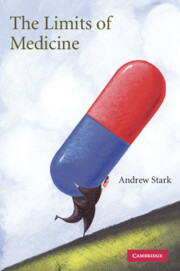3 - Cultural Spouses, Cultural Siblings
Published online by Cambridge University Press: 08 January 2010
Summary
Turn now from the question “when does cure become enhancement?” to “when does cure become cultural genocide?” Suppose that we eliminate deafness, plain facial features, or obesity. Would we not wipe out the cultural traditions associated with those conditions, from ASL, to “beauty is only skin deep” stories to the comedy of Dawn French? Of course, not all of those harboring any given condition will opt for a cure once one is available. Those worried about cultural genocide, however, acknowledge this. Their concern is that whatever damage a phenotypic cure does to a group's cultural tradition, it will begin far below the level at which every group member takes it. And it will simply grow more serious as more do take it. The question is: How exactly should we conceive that damage? What claim could group members who value their condition on cultural grounds lodge against medicine for developing a cure, and against society for funding and permitting it through the state?
Much of the debate concerning cultural genocide, and I'm of course speaking specifically of cultural genocide debate surrounding attempts to draw limits to medicine, pivots on groups' claims to have evolved a culture. But cultural status, especially for the particular groups in question, is a vexing thing to measure. So I suggested in the Introduction that in place of our conventional focus on the meaning of “cultural” in “cultural genocide,” we concentrate instead on the meaning of “genocide.”
- Type
- Chapter
- Information
- The Limits of Medicine , pp. 141 - 186Publisher: Cambridge University PressPrint publication year: 2006



